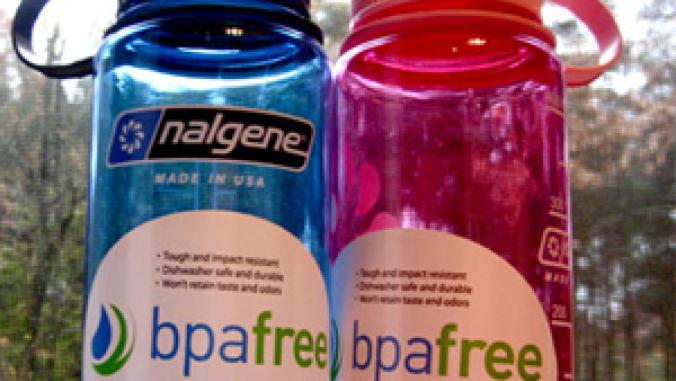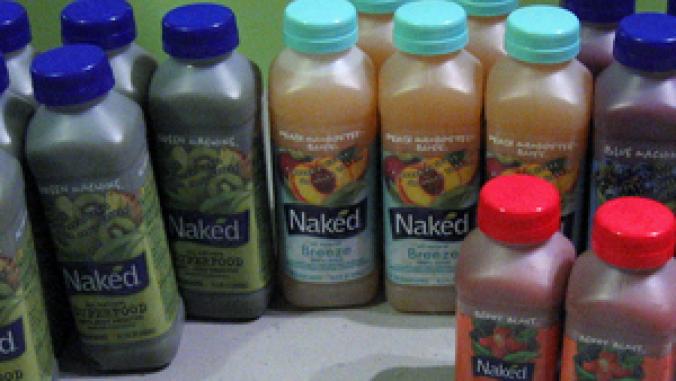Chemical Industry, Health and Environment Groups Push for U.S. Toxics Law Reform
Representatives from environmental organizations and the chemical industry testified before Congress on the need for changes to the U.S.'s 33-year-old toxic chemical control law.

Health and environmental organizations and the chemical industry agreed before Congress that the U.S.'s current law overseeing toxic chemicals is doing a poor job and needs to be updated.
The Commerce, Trade and Consumer Protection Subcommittee of the House Energy and Commerce Committee held the first of several hearings on the Toxic Substances Control Act (TSCA) on Thursday.
The law, established in 1976, is meant to oversee the 82,000-plus chemicals in commerce, but many speakers at the hearing said it severely restricts the government's ability to gather information about and evaluate chemicals.
The TSCA sets high requirements for the U.S. EPA to meet in order to prove that a chemical is harmful and needs to be controlled or banned. The EPA must prove a chemical poses a health threat before it can act to restrict the chemical, but it also needs to have proof that a chemical is a threat in order to force companies to release more information on a chemical. The law also prevents the EPA from sharing most of the information it does gather.
Since the law was enacted, it's only been used to evaluate 200 chemicals and ban five.
Environmental Defense Fund senior scientist Richard Denison, who is also a former member of the U.S. EPA's National Pollution Prevention and Toxics Advisory Committee, said the government needs to expand how much data it's gathering on chemicals and look more at long-term effects. The Learning Disabilities Association of America, the United Steelworkers and WE ACT for Environmental Justice also testified for making a major overhaul of the law.
Cal Dooley, CEO of the American Chemistry Council, an industry trade group, said the law must be modernized to take into account new scientific data.
TSCA reform is also supported by the Government Accountability Office, which first suggested changes to the law in 1994 and this year made toxics assessment and control one of only three issues it added to its high-risk list.
Not all speakers were in total agreement on wanting a massive overhaul. While the Synthetic Organic Chemical Manufacturers Association said some parts of the law should be improved, it feels the law is strong overall.
Charles Drevna, president of the National Petrochemical and Refiners Association, argued against moving towards a chemical policy similar to the European Union's REACH program, which makes companies responsible for proving the safety of their products.
Speakers also stressed the need to restore the public's confidence in the government's oversight of chemicals. In some cases the U.S. is lagging in investigating or restricting chemicals heavily restricted elsewhere. One example given was asbestos, widely known as a dangerous substance, yet it has not been banned by the EPA under the TSCA.
Another example showed how the U.S. is taking in products that countries that make them won't even use. Some of the plywood in trailers built for survivors of Hurricanes Katrina and Rita contained formaldehyde, sickening many. That plywood, which was made in China, cannot be sold within China, and neither Japan nor the European Union will import it.
Smoke - photo CC license by Kyle May
The Commerce, Trade and Consumer Protection Subcommittee of the House Energy and Commerce Committee held the first of several hearings on the Toxic Substances Control Act (TSCA) on Thursday.
The law, established in 1976, is meant to oversee the 82,000-plus chemicals in commerce, but many speakers at the hearing said it severely restricts the government's ability to gather information about and evaluate chemicals.
The TSCA sets high requirements for the U.S. EPA to meet in order to prove that a chemical is harmful and needs to be controlled or banned. The EPA must prove a chemical poses a health threat before it can act to restrict the chemical, but it also needs to have proof that a chemical is a threat in order to force companies to release more information on a chemical. The law also prevents the EPA from sharing most of the information it does gather.
Since the law was enacted, it's only been used to evaluate 200 chemicals and ban five.
Environmental Defense Fund senior scientist Richard Denison, who is also a former member of the U.S. EPA's National Pollution Prevention and Toxics Advisory Committee, said the government needs to expand how much data it's gathering on chemicals and look more at long-term effects. The Learning Disabilities Association of America, the United Steelworkers and WE ACT for Environmental Justice also testified for making a major overhaul of the law.
Cal Dooley, CEO of the American Chemistry Council, an industry trade group, said the law must be modernized to take into account new scientific data.
TSCA reform is also supported by the Government Accountability Office, which first suggested changes to the law in 1994 and this year made toxics assessment and control one of only three issues it added to its high-risk list.
Not all speakers were in total agreement on wanting a massive overhaul. While the Synthetic Organic Chemical Manufacturers Association said some parts of the law should be improved, it feels the law is strong overall.
Charles Drevna, president of the National Petrochemical and Refiners Association, argued against moving towards a chemical policy similar to the European Union's REACH program, which makes companies responsible for proving the safety of their products.
Speakers also stressed the need to restore the public's confidence in the government's oversight of chemicals. In some cases the U.S. is lagging in investigating or restricting chemicals heavily restricted elsewhere. One example given was asbestos, widely known as a dangerous substance, yet it has not been banned by the EPA under the TSCA.
Another example showed how the U.S. is taking in products that countries that make them won't even use. Some of the plywood in trailers built for survivors of Hurricanes Katrina and Rita contained formaldehyde, sickening many. That plywood, which was made in China, cannot be sold within China, and neither Japan nor the European Union will import it.
Smoke - photo CC license by Kyle May




